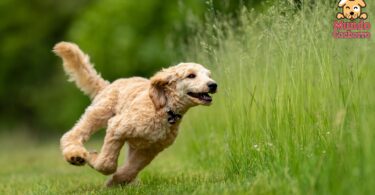On many occasions, dog owners may be tempted to share food from their own diet with their pets. This is either as a token of affection or simply because dogs seem to show interest in what humans are eating. However, feeding dogs human food can carry a number of health risks for pets. Here we explore the potential problems that could arise if your dog eats food intended for people.
Indice
Can the dog eat ice cream?
In general, it is not recommended that dogs eat ice cream designed for human consumption.
Here are some reasons:
- Lactose: Many dogs are lactose intolerant, which means they cannot digest dairy products well.
This can cause them stomach upset, diarrhea and other digestive problems. - Sugar: Ice cream contains a large amount of sugar, which is unhealthy for dogs and can contribute to obesity and other long-term health problems.
- Dangerous ingredients: Some ice creams contain ingredients that are toxic to dogs, such as chocolate, macadamia nuts or certain sweeteners such as xylitol.
- Calories and fat: Ice cream is high in calories and fat, which is not suitable for a dog’s diet and can lead to weight gain and associated health problems.
Problems your dog could have if it eats human food
What happens if your dog eats human food
Digestive problems:
Dogs’ digestive systems are different from those of humans, and some foods that are safe for people can cause stomach upset and even more serious problems in dogs. Fatty, spicy, salty or high-sugar foods can cause vomiting, diarrhea and indigestion in dogs.
Food poisoning:
Some foods that are safe for humans may be toxic to dogs. For example, chocolate, grapes, onions, garlic, macadamia nuts and avocado are just some of the foods that can cause food poisoning in dogs and cause severe symptoms such as vomiting, diarrhea, lethargy and even kidney or liver damage.
Risk of obesity:
Human foods are often higher in calories, fat and sugars than foods designed specifically for dogs. Giving dogs too many human snacks can lead to unwanted weight gain and contribute to the development of obesity, which in turn can increase the risk of chronic diseases such as diabetes, heart disease and joint problems.
Can dogs eat bananas?
Nutritional imbalance:
Human foods may not provide the balanced nutrition dogs need to stay healthy. Dogs have specific dietary requirements in terms of protein, fat, carbohydrates, vitamins and minerals, and feeding them foods designed for humans can lead to nutritional deficiencies or imbalances that affect their long-term health.
Risk of choking or intestinal blockage:
Some foods, such as bones, pretzel sticks or large pieces of raw fruits and vegetables, can pose a risk of choking or intestinal blockage in dogs. Cooked bones can splinter and cause perforations in the gastrointestinal tract, while hard or sharp objects can get stuck in the dog’s esophagus or intestine, requiring urgent veterinary attention.
Five different foods that your dog will love
Dental problems:
Some human foods, such as hard candy, sticky sweets or pretzel sticks, can stick to dogs’ teeth and contribute to plaque and tartar buildup, which increases the risk of dental disease such as gingivitis and periodontal disease.
Specific nutritional needs
In conclusion, while it may be tempting to share food from your own diet with your dog, it is important to remember that dogs have specific nutritional needs. In addition, some human foods can be harmful to your health. Instead of feeding them human food, it is better to provide them with a balanced diet suitable for dogs. And give him special treats and snacks designed for pets. It is always advisable to consult with a veterinarian before making significant changes to your dog’s diet to ensure its long-term health and well-being.
Can dogs eat strawberries?
Safe alternatives to ice cream for dogs
If you want to give your dog a cold treat, consider the following alternatives:
- Dog ice cream: There are specially formulated ice creams for dogs, available at pet stores, that do not contain harmful ingredients.
- Plain yogurt: Sugar-free and lactose-free yogurt in small amounts can be an option, but always check that it does not contain artificial sweeteners.
- Frozen banana: Frozen banana chips can be a safe and healthy option.
- Ice cubes: Some dogs enjoy chewing ice cubes, especially on hot days.
It is always a good idea to consult with your veterinarian before introducing new foods into your dog’s diet to make sure they are safe for your dog.







